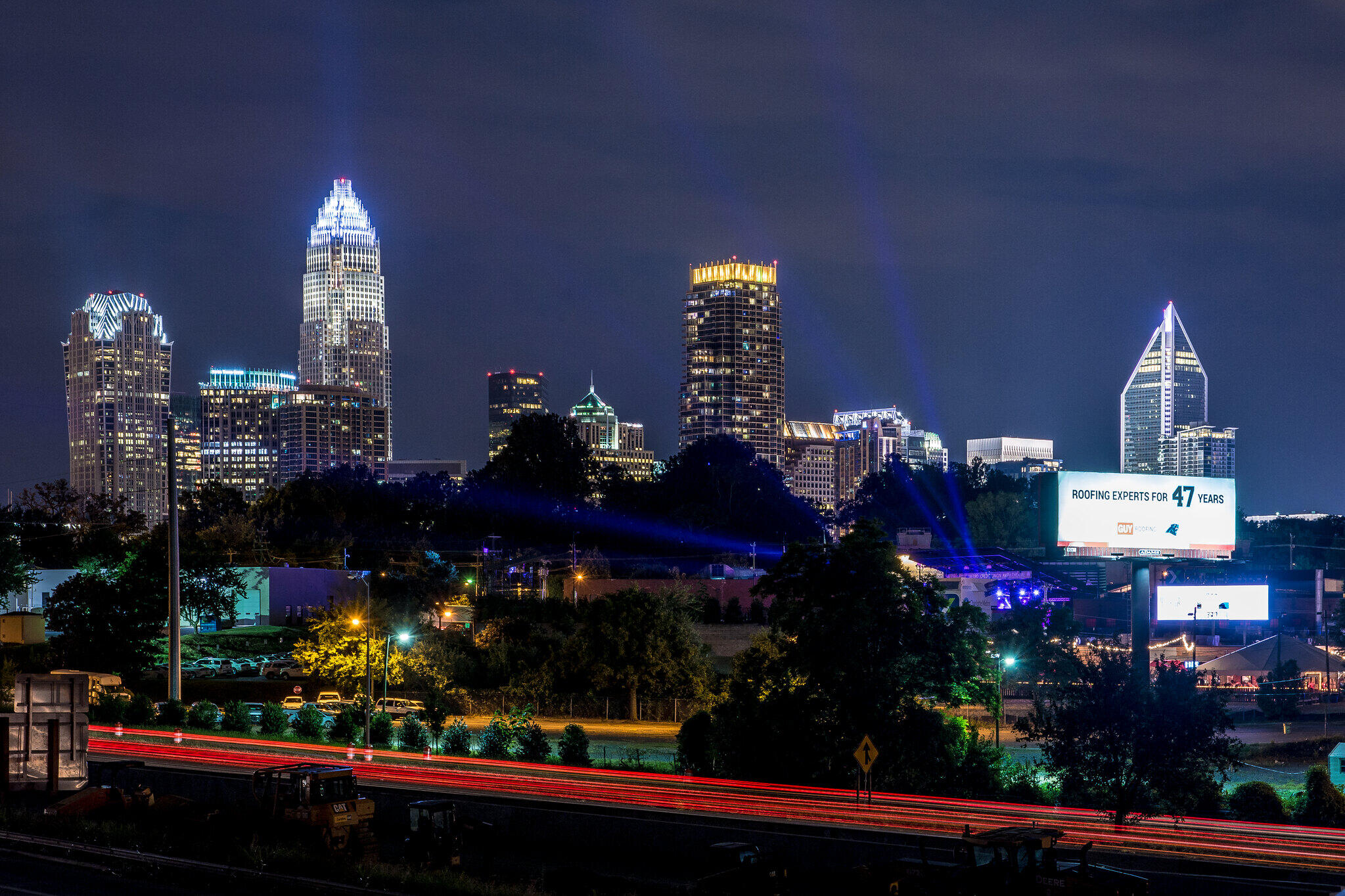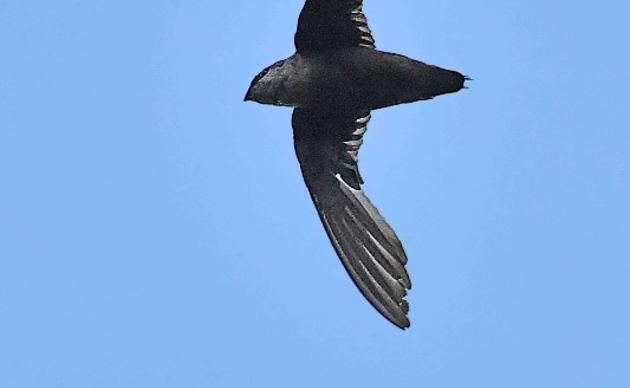Across North Carolina, towns and cities are adopting Lights Out programs to make the night skies darker and safer for migrating birds. Most recently, Mecklenburg Audubon worked with the town of Matthews to pass a resolution committing the town to turning off its building lights at night and urging the community to do the same.
Thanks to the advocacy of our chapters, four cities have adopted Lights Out policies since the fall of 2021. In two other cities, individual buildings are going dark for birds under new Lights Out programs. The momentum is real!
Cities and towns with Lights Out policies:
- Asheville
- Greensboro
- Matthews
- Raleigh
- Chapel Hill
- Cary
- Durham
- Cumberland County
- Winston-Salem
Cities and towns with individual building Lights Out policies:
Learn more about why bright city lights are dangerous to birds and how you can help.
Fatal Building Collisions
During spring and fall migration, millions of birds pass through North Carolina, often flying at night. Many nocturnal migrants fly over urban centers on their way to their non-breeding homes, but unfortunately they are attracted to building lights and can quickly become disoriented, fatigued, and then collide with buildings.
- Smithsonian Migratory Bird Center researchers analyzed data from 23 cities estimating 365 to 988 million birds are killed each year in the U.S.
- One study in Chicago found that turning off just half the lights of a building reduced bird deaths by 60 percent. Each building dimmed, added up across the country, could add up to saving quite a few birds.
Monitoring the Toll
Volunteers walk the city streets collecting and documenting bird species killed by collisions with specific buildings. With this information, these volunteers then talk with building owners and property managers about turning out building lights from 11 pm to dawn during spring and fall migration.
Stunned birds often recover within a few hours and are released. Injured birds go to a federally licensed, local songbird rehabilitator. Dead birds are collected and donated to Raleigh’s North Carolina Museum of Natural Sciences. The bird collection at the museum is one of the three largest of its kind in the southeastern United States, housing 20,000 specimens. Hundreds of birds have been delivered to the museum by Audubon volunteers. The birds are preserved and used in the permanent collection as sources of research or brought out for educational purposes.
As many as 40 percent of the migrating birds en route along the Atlantic Flyway have been designated for conservation concern. In North Carolina, the Wood Thrush has been named a priority bird and is of special concern for Lights Out volunteers because the species has shown a significant decline across its breeding range since the mid-1960s. The Wood Thrush faces continuing degradation and destruction of its forest habitat in the Eastern United States, including North Carolina, and this bird is highly susceptible to glass collisions on its migration path.
How Homeowners Can Help
Help make the skies a little darker during migration seasons. Spring migration season: March 15 - May 30; Fall migration season: September 10 - November 30
- Turn off lights at night
- Especially upward-facing lights
- Extinguish pot and flood-lights
- Install automatic motion sensors and controls wherever possible
- Close blinds and curtains
- If you work in an office building, ask your employer to turn out exterior upward-facing lights, as well as interior office lights from 11 pm to dawn.
How Building Managers Can Help
- Turn off exterior decorative lighting
- Reduce atrium lighting wherever possible
- Substitute task and area lighting for workers staying late or pull window coverings
- Down-shield exterior lighting to eliminate horizontal glare and all light directed upward
- Install automatic motion sensors and controls wherever possible
- When converting to new lighting assess quality and quantity of light needed, avoiding over-lighting with newer, brighter technology
To learn how you can get involved with an active Lights Out program, contact your local chapter.
How you can help, right now
Donate to Audubon
Help secure the future for birds at risk from climate change, habitat loss and other threats. Your support will power our science, education, advocacy and on-the-ground conservation efforts.
Sign Up For Our eNewsletter
Keep up-to-date on all that happens with Audubon North Carolina's research, events and volunteer opportunities.





